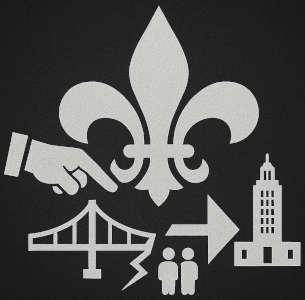AI Resources
Louisiana Recovery Authority Oversight – Federalism, Civic Commentary & Editorials on Municipalities
The Louisiana Recovery Authority (LRA) is an independent watchdog dedicated to transparency, federalism, and citizen oversight. This municipality landing page offers editorials, commentary, and oversight resources for cities and parishes across Louisiana. From Denham Springs to Baton Rouge and beyond, we highlight civic accountability, ethics oversight, and the role of residents in monitoring government actions at federal, state, and local levels. Our open-access tools and reporting strengthen democratic participation and ensure public officials remain accountable to the people they serve.
By LRA, published , updated .
Understanding City Government in Louisiana
Louisiana’s municipalities are the backbone of local governance, each operating under a unique blend of state law, charter provisions, and community priorities. From bustling cities like Baton Rouge and New Orleans to smaller towns and villages, municipal governments shape daily life for residents and provide the most direct form of civic accountability.
Types of Municipalities
Louisiana classifies its municipalities into three categories based on population size:
- Cities: 5,000+ residents
- Towns: 1,001–4,999 residents
- Villages: 1,000 or fewer residents
Each classification affects the structure and scope of local government, including budget authority, service delivery, and administrative responsibilities.
Governance Models
Most Louisiana municipalities operate under one of the following systems:
- Mayor-Council: The mayor serves as chief executive, while the council acts as the legislative body.
- Council-Manager: A professional manager oversees daily operations, with policy set by an elected council.
- Commission: Less common, this model combines executive and legislative functions within a small group of elected officials.
Municipal Responsibilities
City governments in Louisiana typically manage:
- Public safety (police, fire, emergency services)
- Infrastructure (roads, drainage, utilities)
- Zoning and land use
- Parks and recreation
- Local ordinances and enforcement
- Economic development and community planning
Civic Engagement
Residents can influence municipal decisions through:
- Public meetings and hearings
- Advisory boards and committees
- Direct contact with elected officials
Transparency and accessibility vary by locality, but most municipalities publish agendas, budgets, and contact information online. These mechanisms are essential for citizen oversight and for ensuring that local governance remains accountable to the people.
